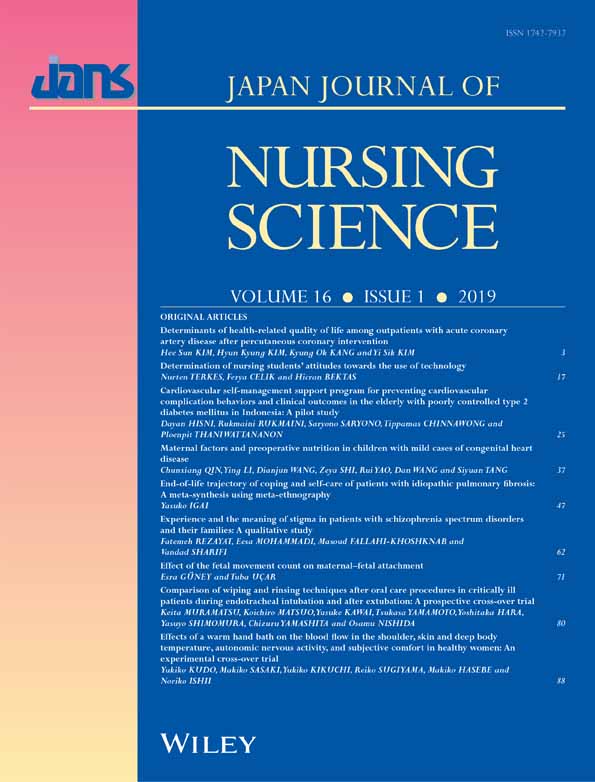Determinants of health-related quality of life among outpatients with acute coronary artery disease after percutaneous coronary intervention
Abstract
Aim
This study aimed to identify health-related quality of life (HRQoL) and its determinants in outpatients with acute coronary syndrome (ACS) after percutaneous coronary intervention.
Methods
A cross-sectional design was used and a total of 124 Korean participants was enrolled. The HRQoL (physical limitations, treatment satisfaction, and disease perception), symptom experience (frequency, severity, and distress), physiological (left ventricular ejection fraction and lipids), psychological (depression and anxiety), and situational (social support) factors were measured, selected on the basis of the theory of unpleasant symptoms. The HRQoL was assessed by using the Seattle Angina Questionnaire-Korean, designed to evaluate disease-specific health outcomes in patients with coronary artery disease. Descriptive statistics and multiple linear regression analyses were conducted.
Results
The mean age of the participants was 61.73 years. The HRQoL was moderate. Among the HRQoL domains, disease perception showed the lowest level. The most intense symptoms that were experienced by the participants were fatigue, shortness of breath, and chest discomfort. More than half of the participants had depression and anxiety. The determinants of worse HRQoL were severe symptom experience, higher depression, higher low-density lipoprotein cholesterol, a lower educational level, and lower social support.
Conclusion
This study proposes a comprehensive approach to health care that incorporates symptom experience, as well as the physiological, psychological, and situational aspects based on the theory of unpleasant symptoms, to improve the HRQoL among outpatients with ACS. Nurses should play a key role to help patients with ACS to deal with the symptoms, low-density lipoprotein cholesterol, and depression and to promote social support, particularly in less-educated patients, in order to improve their HRQoL.
CONFLICT OF INTEREST
The authors declare that they have no conflict of interest.




